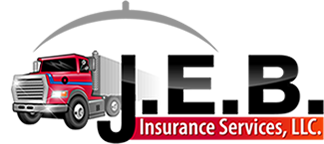Commercial truck drivers have many responsibilities to safely and legally operate on public roads. There is extensive paperwork required along with proper equipment. On top of that, appropriate insurance coverage is crucial. Without it, trucking businesses remain exposed to major liability in the event of an accident or cargo claim.
Having valid licenses, registrations, inspection reports, and operating credentials show trucking companies are running above board. Detail-oriented documentation provides insurers confidence in risk management. On the other hand, lapses in paperwork undermine safety practices and make truckers less insurable.
To stay compliant on the road, commercial truck drivers should always have these key items:
Valid Commercial Driver’s License
Don’t head out on the road without a valid Commercial Driver’s License (CDL) for the class and type of vehicle you are operating. Confirm it has not expired or been revoked/suspended for any reason. Your CDL must be in your possession at all times when driving.
Proof of Insurance
Every driver must carry proof that their vehicle is properly insured. This usually means having the insurance card or other documentation from your provider in the vehicle at all times. Don’t risk a fine by operating without required insurance coverage.
Vehicle Registration
The registration for your truck must be valid and current. Keep the registration card handy in case it needs to be presented during inspections or weigh station stops. An expired registration could mean delays on your route.
Up-to-Date Medical Certificate
In addition to a CDL, you must have a current medical examiner’s certificate verifying you are physically qualified to drive commercially. Medical certificates must be renewed every 2 years with a new physical exam.
Accurate and Current Logbook
You must record all your duty hours including driving time, on-duty not driving, time spent loading/unloading, pre-trip inspections, rest breaks, off-duty, and sleeper berth time. Keep a logbook for the previous 7 days available for inspection. This proves you are adhering to hours of service regulations.
IFTA License and Decals
If you operate across multiple states and are required to pay fuel taxes, your IFTA (International Fuel Tax Agreement) credentials are essential. Your IFTA license proves registration in the program while the decals authorize interstate travel. Keep them available.
Recent DOT Inspection Report
After undergoing an inspection, make sure to keep the most recent DOT report on board. This will indicate any past violations or deficiencies have been addressed or fixed.
Cargo Manifests and Shipping Papers
Have bills of lading, manifests, and any shipping documents related to your cargo (especially HAZMAT) neatly organized and accessible. Hazardous materials being transported require shipping papers that describe the hazards, contents, and emergency procedures. Drivers must retain these for 375 days.
Emergency Roadside Equipment
In addition to proper paperwork, commercial truck drivers will need basic emergency supplies like reflector triangles, spare fuses, spare lights, and a charged fire extinguisher. Inspect them regularly to ensure roadside readiness.
ELD in Working Order
It’s critical to verify the electronic logging device (ELD) installed in your commercial truck is in good working condition before each trip. ELDs record duty status, hours of service, mileage, and more. A malfunctioning unit could put you out of compliance.
Other Items to Consider
- Current motor carrier Certificate of Authority
- Waste disposal procedures
- Blank driver’s vehicle inspection reports
- Hazardous materials (Hazmat) training certificate
- Securement instructions for specialty cargo
- Snow chains during winter months
Staying on top of paperwork, credentials, and equipment for your rig simplifies compliance. But don’t rely on memory alone – develop checklists and protocols to make sure you have what’s needed.
Don’t let paperwork slow you down or risk operating uninsured. Contact J.E.B. Insurance Services, LLC today to discuss your coverage options and get back to profitably moving freight! Our dedicated staff will make sure you have what you need to hit the open road with confidence. We provide commercial truck insurance in Florida, Georgia, Iowa, Illinois, Nebraska, North Carolina, South Carolina, Tennessee & Texas.


